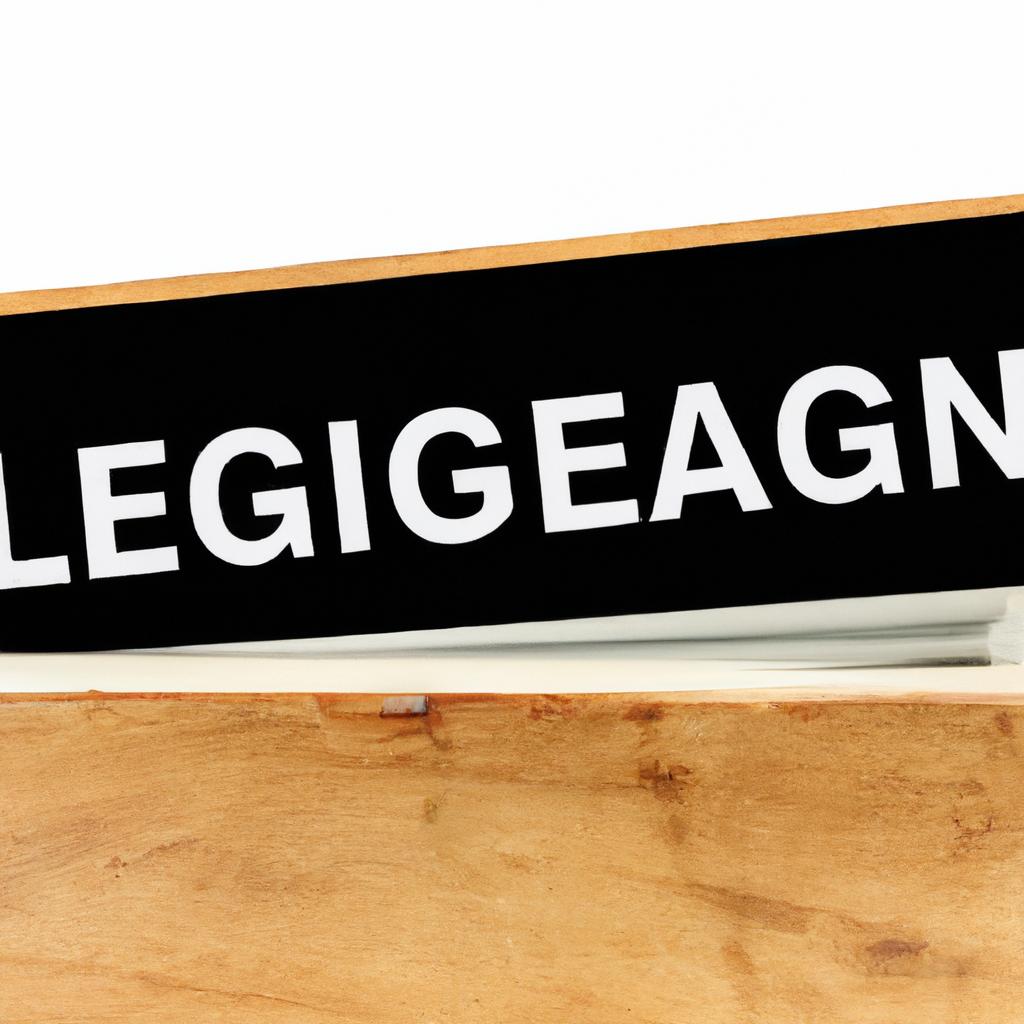In the unfortunate event of a tenant’s passing, the question arises: what happens to their belongings? When a tenant dies, their personal property becomes subject to a complex legal process that is governed by state laws and the terms of the lease agreement. As experienced legal professionals at Morgan Legal Group in New York City, we navigate the intricacies of estate planning, probate, and asset distribution to ensure that the rights and preferences of all parties involved are protected. Join us as we explore the legal implications surrounding the disposition of a deceased tenant’s belongings.
Tenant dies: Understanding the legal implications for their belongings
When a tenant passes away, there are important legal implications to consider regarding their belongings. It is crucial to understand what happens to the tenant’s possessions and how they are handled according to the law.
Here are some key points to keep in mind:
- Probate Process: The tenant’s belongings may need to go through the probate process to determine how they will be distributed.
- Ownership Rights: The ownership of the belongings may pass on to the tenant’s beneficiaries or heirs according to their will or the laws of intestacy.
- Landlord’s Rights: The landlord may have certain rights over the tenant’s belongings, especially if there are outstanding debts or unpaid rent.

Navigating the process of handling a deceased tenant’s personal property
Handling a deceased tenant’s personal property can be a delicate and complex process that requires careful navigation. As professionals in estate planning and probate law, we understand the challenges that can arise when a tenant passes away and leaves behind personal belongings. Here are some key points to consider when managing the deceased tenant’s estate:
Communicate with the tenant’s family or executor:
- Reach out to the tenant’s family or executor to inform them of the situation and discuss next steps.
- Obtain necessary documentation, such as a death certificate or legal authorization, to proceed with handling the tenant’s personal property.
Inventory and secure the tenant’s belongings:
- Conduct a thorough inventory of the deceased tenant’s personal property and determine the value of any assets.
- Secure the tenant’s belongings to prevent theft or damage while the estate is being settled.

Key steps to take when a tenant passes away in a rental property
In the unfortunate event that a tenant passes away in a rental property, certain key steps must be taken to handle their belongings with care and in accordance with the law. It is important to proceed with sensitivity and consideration for the deceased’s family and loved ones during this difficult time.
Here are the :
- Notify the Authorities: The first step is to contact the local authorities and emergency services to report the tenant’s passing. They will handle the necessary legal procedures and documentation.
- Secure the Property: It is essential to secure the rental property to prevent any unauthorized access or theft of the deceased tenant’s belongings. Change the locks if needed and inform the landlord or property manager of the situation.
- Contact the Next of Kin: Reach out to the tenant’s next of kin or designated emergency contact to inform them of the situation and coordinate the removal of the deceased’s belongings.
- Inventory and Assess Belongings: Create an inventory of the tenant’s belongings in the rental property. Assess the value of the items and determine if any special arrangements need to be made for valuable or sentimental possessions.

Seeking legal guidance to properly manage a deceased tenant’s belongings
When a tenant passes away, it can be a complicated and sensitive situation for everyone involved. As the landlord or property manager, it is essential to seek legal guidance to properly manage the deceased tenant’s belongings. Without the proper legal steps, you may find yourself in a difficult position with potential legal ramifications. At Morgan Legal Group, we specialize in estate planning and probate law and can provide you with the necessary guidance to navigate this challenging situation.
One important step to take is to consult with an attorney to understand your rights and obligations as a landlord or property manager. An attorney can help you determine the proper procedures for handling the deceased tenant’s belongings, such as securing the property, inventorying the belongings, and notifying any potential heirs or next of kin. Additionally, our team at Morgan Legal Group can assist you in drafting any necessary legal documents, such as eviction notices or letters to the tenant’s family members. With our expertise in estate planning and probate law, we can help you navigate the legal complexities involved in managing a deceased tenant’s belongings with professionalism and efficiency.
Q&A
Q: What happens to a tenant’s belongings if they die in their rental property?
A: When a tenant passes away in their rental property, the fate of their belongings can vary depending on the circumstances.
Q: Who is responsible for handling the deceased tenant’s belongings?
A: Typically, it is the responsibility of the deceased tenant’s next of kin or estate executor to handle their belongings.
Q: What if the deceased tenant has no next of kin or executor?
A: In this case, the landlord may need to take steps to secure and eventually dispose of the belongings in accordance with local laws.
Q: Can the landlord keep the deceased tenant’s belongings as compensation for unpaid rent?
A: No, landlords cannot keep a deceased tenant’s belongings as compensation for unpaid rent. They must follow legal procedures for handling abandoned property.
Q: What should a landlord do if they discover a deceased tenant in their rental property?
A: If a landlord discovers a deceased tenant in their rental property, they should contact the authorities immediately and then proceed to notify the tenant’s next of kin or executor.
Q: Is there any legal recourse for the landlord if the deceased tenant’s belongings are left behind?
A: Landlords should refer to state and local laws regarding the handling of abandoned property to ensure they are in compliance with legal requirements.
Key Takeaways
In conclusion, when a tenant tragically passes away, their belongings are not simply left behind without any consideration. Depending on the circumstances, family members, landlords, or estate administrators may step in to ensure the property is handled and distributed appropriately. It is a somber reminder of the importance of planning for the future and communicating wishes to loved ones. Ultimately, navigating the process with compassion and understanding can help bring closure during a difficult time.


